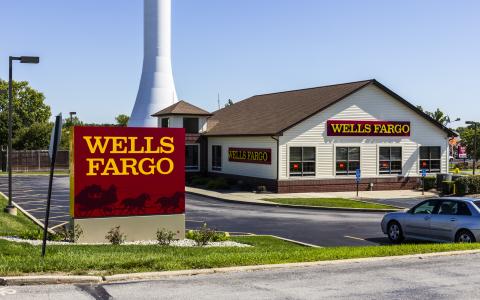
Effective April 1, 2019, Andrew Tuttle, CFA, of Crow Point Partners, LLC, will no longer be a portfolio manager for the Wells Fargo Global Dividend Opportunity Fund and the Wells Fargo Utilities and High Income Fund.
Crow Point Partners is a subadvisor to the two affected funds.
Kandarp Acharya, CFA, FRM; Christian Chan, CFA; Niklas Nordenfelt, CFA; Timothy O’Brien, CFA; and Philip Susser will continue their roles as portfolio managers for the Wells Fargo Global Dividend Opportunity Fund.
The fund’s investment philosophy and processes will remain the same.
The Global Dividend Opportunity Fund is a closed-end equity and a high-yield bond fund. The fund’s investment objective is to seek a high level of current income. Its secondary objective is long-term growth of capital.
Niklas Nordenfelt, CFA; Timothy O’Brien, CFA; and Philip Susser will continue their roles as portfolio managers for the Wells Fargo Utilities and High Income Fund.
The fund’s investment philosophy and processes will remain the same.
The Utilities and High Income Fund is a closed-end equity and a high-yield bond fund. Its investment objective is to seek a high level of current income and moderate capital growth, with an emphasis on providing tax-advantaged dividend income.
These closed-end funds are no longer engaged in initial public offerings, and shares are only offered through broker-dealers on the secondary market. Unlike an open-end mutual fund, a closed-end fund offers a fixed number of shares for sale.
After the initial public offering, shares are bought and sold through broker-dealers in the secondary marketplace, and the market price of the shares is determined by supply and demand, not by NAV, and is often lower than the NAV. A closed-end fund is not required to buy its shares back from investors upon request.
High-yield, lower-rated bonds may contain more risk due to the increased possibility of default. Foreign investments may contain more risk due to the inherent risks associated with changing political climates, foreign market instability, and foreign currency fluctuations.
Risks of international investing are magnified in emerging or developing markets.
Funds that concentrate their investments in a single industry or sector may face an increased risk of price fluctuation over more diversified funds due to adverse developments within that industry or sector. Small- and mid-cap securities may be subject to special risks associated with narrower product lines and limited financial resources compared with their large-cap counterparts.
When interest rates rise, the value of debt securities tends to fall. When interest rates decline, an interest that a fund is able to earn on its investments in debt securities also may decline, but the value of those securities may increase.
Changes in market conditions and government policies may lead to periods of heightened volatility in the debt securities market and reduced liquidity for certain fund investments. Interest rate changes and their impact on the funds and their NAVs can be sudden and unpredictable.
The use of leverage results in certain risks, including, among others, the likelihood of greater volatility of the NAV and the market price of common shares.
Derivatives involve additional risks, including interest rate risk, credit risk, the risk of improper valuation, and the risk of noncorrelation to the relevant instruments they are designed to hedge or to closely track.
There are numerous risks associated with transactions in options on securities. Illiquid securities may be subject to wide fluctuations in market value and may be difficult to sell.



